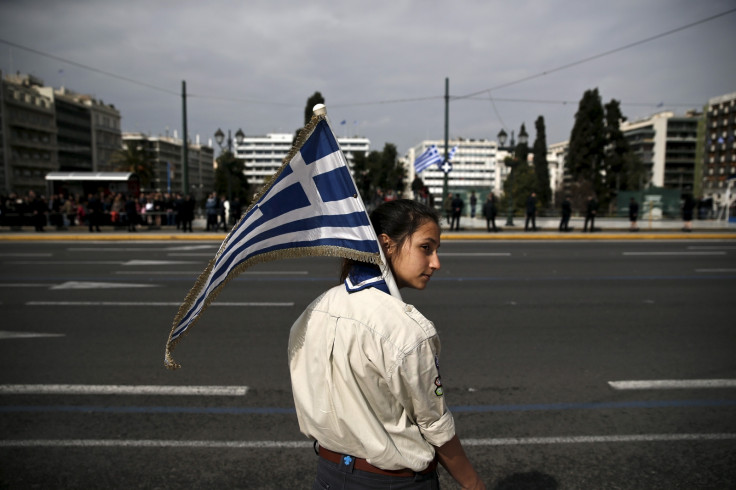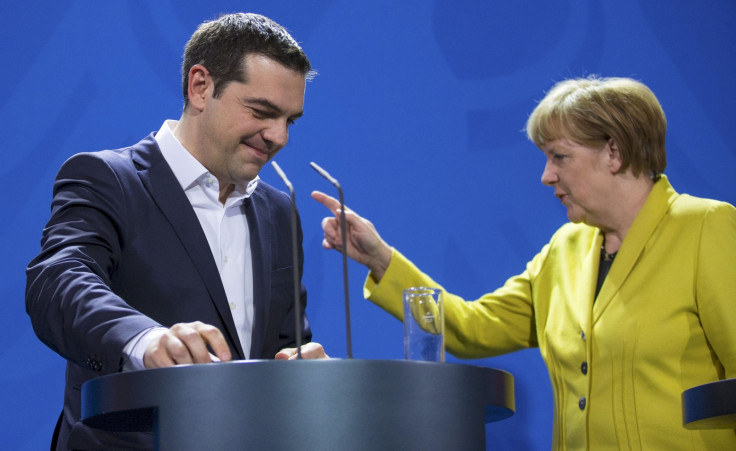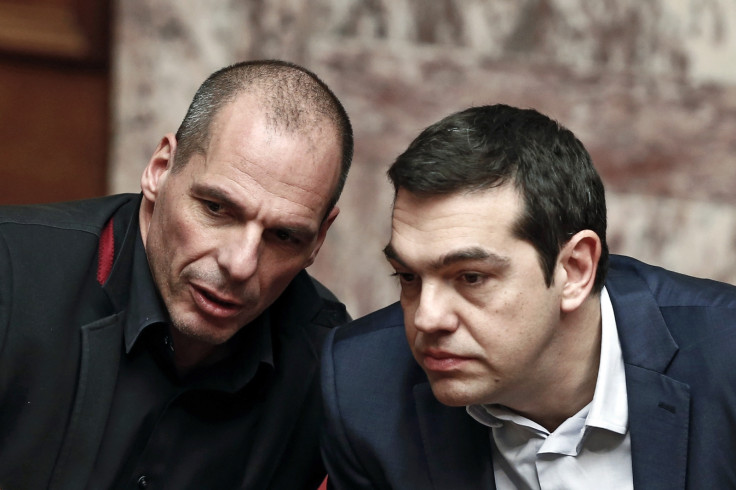Greek National Day: Greece should understand that the troika is not the Ottoman Empire

Greek National Day, held on March 25 every year, is a celebration of the fight for independence from the Ottoman Empire in the early 19th century for what would become the Hellenic Republic.
While Greek schoolchildren parade in traditional costumes to commemorate the struggle for independence, their flag-waving patriotic parents cheering them on, the country's leader Alexis Tsipras may have unwittingly begun a new independence movement in Greece – one that leads to independence from Europe.
To some Greeks, the European authorities are a modern set of imperial masters like the Ottomans who ruled over them for over 470 years, demanding slavish subordination at the expense of national sovereignty and integrity.
But the creditors of Greece known as the troika - the European Union (EU), European Central Bank (ECB) and International Monetary Fund (IMF) - who rescued the country from economic collapse say they are governed by the democracies they serve. Everyone's interests must be considered, not just the Greeks'.
A Berlin summit between Tsipras and the German chancellor Angela Merkel, whose country is the largest individual of creditor of Greece, was supposed to heal wounds between the two. But while the rhetoric softened, their respective positions did not. And that's what counts most.
"We want Greece to be strong economically," Merkel said at the press conference after their meeting. "We want Greece to grow and above all we want Greece to to overcome its high unemployment."
That means sticking to the fundamentals of the plan - austerity and economic reform for more credit.
In exchange for €240bn (£177bn, $263bn) of rescue loans from the troika, released in two bailout packages, Greece must liberalise its economy and cut back on public spending to bring government finances in check. This has not been an easy process for Greeks, who have seen a spike in unemployment, tumbling living standards and a collapse in their incomes. Greek people are suffering.

Tsipras spoke in Berlin of working to "break the stereotypes" that the Greeks were lazy and the Germans the cause of all of his country's problems. But he also said the Greek bailouts had not been a success because of the huge shrinkage of the economy - GDP has slumped by a quarter - and painfully high unemployment, which peaked at 28% in 2013. Youth unemployment peaked at 60%.
Tsipras wants the troika to relax the bailout terms and allow him to, as he promised Greek voters when his radical leftist Syriza party was elected on an anti-austerity platform in January 2015, spend more.
"It makes me feel bad," John M. Carras, a Greek expat in the UK and treasurer of the Anglo-Hellenic League, told IBTimes UK. "But then again, they borrowed money, they had good pensions all these people, they've been using up the money like hell all these years and now they have come to a point where they can't find any more money.
"It's difficult. Here in England you decided you're going to stay in the pound. The Chancellor if he needs some money goes to the press and says print me some money, I need to pay a couple of people. It's quantitative easing as you call it.
"There you solve the problem. You need the money, you print the money. Whereas with Greece being in the euro, they depend on the decision of somebody else to print money and give it to them."
On the horizon are two significant bond redemptions in July and August, worth almost €7bn. Put simply, that is when Greece has to pay back some of the money is has borrowed from investors who bought its government bonds. Greece argues that it cannot afford to pay this debt back without a third bailout.
In a letter from mid-March, leaked to the media, Tsipras told Merkel that it would be "impossible" for Greece to meet its short-term debt obligations because of delays to more bailout money being released and that the ECB has restricted his country's ability to issue debt.
Impossible unless he tightens Greek public finances even further, but that would cause a "sharp deterioration in the already depressed Greek social economy – a prospect that I will not countenance."

At the end of February, Greece and the troika agreed to a temporary four-month extension of the bailout package. This was a holding ploy. They couldn't agree terms on a new third bailout loan, so they hoofed the problem down the road with an extension. In the meanwhile, Greece has to submit a list of proposed reforms to the troika for approval.
If these proposals are acceptable to the creditors, by sticking to the core principles of austerity and reform, they will release more money to Greece. If not, Greece may well default on its debts, exit the eurozone currency and leave the EU. One side has to give way. Who'll it be?
Ordinary Greeks are paying the heavy price of past profligacy by their governments. The streets of Athens have been filled by Greek protestors against austerity, denouncing the troika and holding placards that depict the Merkel as the Nazi dictator Adolf Hitler. Once again, Greeks are demanding independence and sovereignty.
But the troika are not imperial dictators like the Ottomans. The European authorities are democratic, intra-governmental and Greece willingly opted in to the EU and eurozone. If Greece no longer wishes to be part of these institutions, it has the sovereignty to withdraw, renege on its debts and go it alone. That too will be a painful procedure.
Independence will come at a price, and that price may be higher than the one already being paid.
© Copyright IBTimes 2024. All rights reserved.






